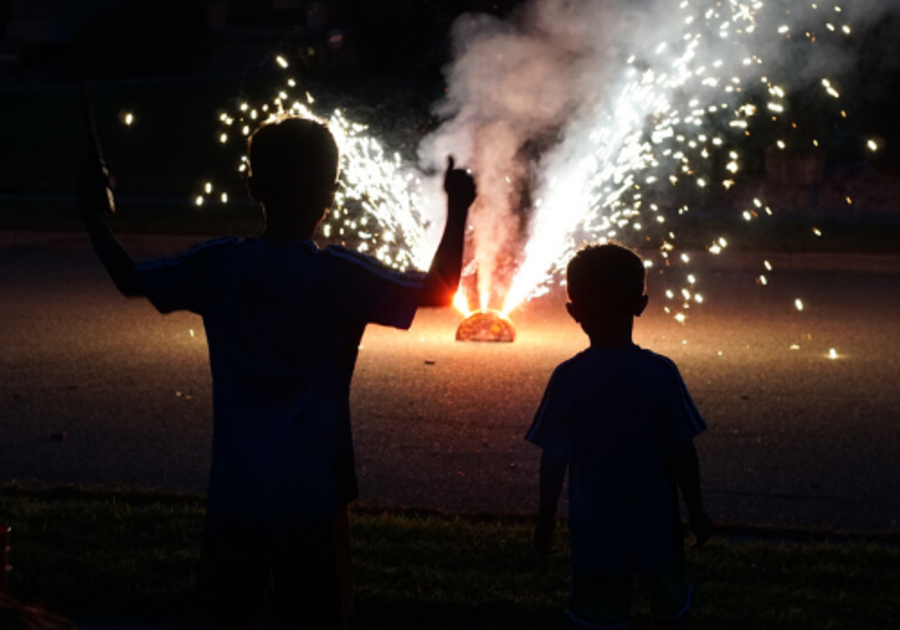It's the time of year for one of the most American of traditions: Fireworks! While many families enjoy the fireworks displays in our local communities, some will likely purchase their own fireworks for additional at-home fireworks fun.
Nowadays, the fireworks many people can purchase — depending on state laws — are much bigger and more powerful than they were when I was a kid. No matter what size your fireworks display is, fireworks can be hazardous if proper care is not taken.
According to the Pew Research Center, the 4th of July is the most dangerous day of the year, with trips to hospital emergency rooms by far the highest daily numbers of the year. Fireworks are the culprit. About two-thirds of firework injuries occur during the weeks surrounding Independence Day.
In 2023, according to the U.S. Consumer Product Safety Commission, there were 8 deaths and 9,700 injuries. The highest number of injuries requiring a trip to the ER last year were reported among teenagers ages 15 to 19. The second-highest rate was among children ages 5 to 9. Sparklers injured nearly as many people as more powerful firecrackers. About 700 people went to the emergency room with burns and injuries from sparklers.
Here are nine safety tips from the U.S. Consumer Product Safety Commission to keep in mind if you'll be setting off fireworks at home:
- Make sure consumer fireworks are legal in your area before buying or using them.
- Never use or make professional-grade fireworks.
- Never allow young children to play with or ignite fireworks, including sparklers. Sparklers burn at temperatures of about 2,000 degrees Fahrenheit. This is hot enough to melt some metals. For children under 5 years of age, sparklers accounted for more than half of the total estimated fireworks injuries.
- Never place any part of your body directly over a fireworks device when lighting the fuse. Move to a safe distance immediately after lighting fireworks.
- Never point or throw fireworks at another person or occupied area.
- Light fireworks one at a time, then move away from them quickly.
- Keep a bucket of water or a garden hose handy, in case of fire or other mishaps.
- Never try to relight or handle malfunctioning fireworks. Soak them with water and throw them away.
- After fireworks complete their burning, douse the spent device with plenty of water from a bucket or hose before discarding the device, to prevent a trash fire.
We hope with a little care and caution, your family has a safe and happy Independence Day holiday!
For more information, visit the U.S. Consumer Product Safety Commission's fireworks safety education center.




